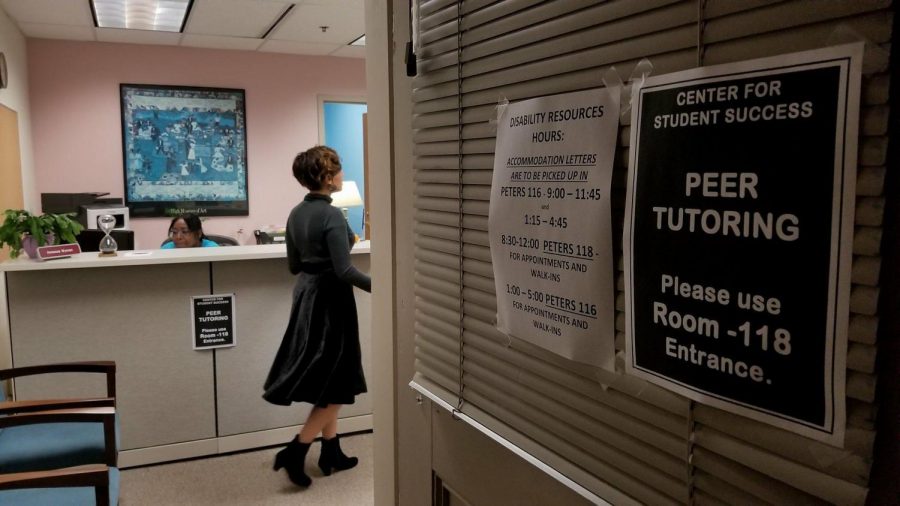Transitioning to College? Start Now to Be Good to Go in the Fall!
by Dr. Liz, June 30, 2022

 The transition from high school to college can be overwhelming for any student but is compounded for students with ADHD and/or learning disabilities (LD). Compared to high school, there is more freedom, a less structured day, and significantly more free time. Many college classes consist of lectures that require high levels of attention and critical thinking. You may be required to do lots of reading that does not get discussed in class but that you are expected to know for exams. In college, low grades may result in losing a scholarship, being benched from a sport, or being put on academic probation. Most importantly, no one knows about your disabilities unless YOU tell them and ask for help. If you don’t have a transition plan yet, take some time this summer to plan and strengthen the skills you will need in the fall. Here are some things to work on so you will be ready to hit the ground running in September!
The transition from high school to college can be overwhelming for any student but is compounded for students with ADHD and/or learning disabilities (LD). Compared to high school, there is more freedom, a less structured day, and significantly more free time. Many college classes consist of lectures that require high levels of attention and critical thinking. You may be required to do lots of reading that does not get discussed in class but that you are expected to know for exams. In college, low grades may result in losing a scholarship, being benched from a sport, or being put on academic probation. Most importantly, no one knows about your disabilities unless YOU tell them and ask for help. If you don’t have a transition plan yet, take some time this summer to plan and strengthen the skills you will need in the fall. Here are some things to work on so you will be ready to hit the ground running in September!
Know Yourself
 If you have been diagnosed with ADHD and/or a learning disability, get all your paperwork together in a folder. Include all diagnoses and evaluations; doctors’ contact information; medical, educational and psychological testing results and reports; your IEP or Section 504 paperwork; and your medication history. Learn everything you can about your diagnoses and be able to explain how they affect you academically and socially. Be able to explain which accommodations have been helpful and which have not. Know what medications you take, what they are for, when you take them, and when they wear off. Think about your best and worst subjects, study and test strategies that work for you, and your favorite studying environment. Practice explaining those things to someone else.
If you have been diagnosed with ADHD and/or a learning disability, get all your paperwork together in a folder. Include all diagnoses and evaluations; doctors’ contact information; medical, educational and psychological testing results and reports; your IEP or Section 504 paperwork; and your medication history. Learn everything you can about your diagnoses and be able to explain how they affect you academically and socially. Be able to explain which accommodations have been helpful and which have not. Know what medications you take, what they are for, when you take them, and when they wear off. Think about your best and worst subjects, study and test strategies that work for you, and your favorite studying environment. Practice explaining those things to someone else.
Practice Independence
 How independent are you? What about your support system? What do they do for you and with you?
Who is responsible for managing your medications? Do you refill your prescriptions, pick them up,
or have them delivered? Do you schedule your own appointments with doctors, dentists, and other personal
service providers? Who is responsible for you sticking to your AHDH treatment plan? If your parents
have been doing these things for you, now is the time to change. This summer is the perfect time to
start accepting these responsibilities and to begin doing these things for yourself.
How independent are you? What about your support system? What do they do for you and with you?
Who is responsible for managing your medications? Do you refill your prescriptions, pick them up,
or have them delivered? Do you schedule your own appointments with doctors, dentists, and other personal
service providers? Who is responsible for you sticking to your AHDH treatment plan? If your parents
have been doing these things for you, now is the time to change. This summer is the perfect time to
start accepting these responsibilities and to begin doing these things for yourself.
Practice Self-Advocacy
 Self-advocacy means knowing who you are, what you need, and how to ask for it. You
self-advocate when you understand your disability, know your legal rights, and can communicate
about those things to people in positions of authority. Self-advocacy is important in college
because you need to manage your time and stay organized without support from your parents or
teachers. You need to recognize when you need help and who to ask for the help you need.
Self-advocacy means knowing who you are, what you need, and how to ask for it. You
self-advocate when you understand your disability, know your legal rights, and can communicate
about those things to people in positions of authority. Self-advocacy is important in college
because you need to manage your time and stay organized without support from your parents or
teachers. You need to recognize when you need help and who to ask for the help you need.
Research Your College Resources
During the summer, research the resources available at your college, including disability services, health-related services, academic services, and personal services.
Disability Services
 Research your school’s Disability Services Office (DSO). (It might be called something different – try
searching the school’s web site for “accommodations” or “disabilities.”) Find their website to see where
they are located, what services they offer, what types of accommodations are available, and the best way
to make an appointment. Find out what type of paperwork is required, and how recent it has to be (for
most schools it must be less than three years old). Then make an appointment! If you
live near the school, you can set up an in-person meeting before the semester starts. If you live far
away, see if they can meet with you online. If you wait until school starts to make an appointment, you
will be competing with many other students for appointment times and your accommodations
may not be in place in time for your first assignment, quiz, or exam. When you go to your appointment,
bring any documentation that you have compiled. When you speak with DSO staff, ask about other resources
that may be beneficial to incoming students. You may also want to know if there is any extra cost
for special services like coaching or tutoring.
Research your school’s Disability Services Office (DSO). (It might be called something different – try
searching the school’s web site for “accommodations” or “disabilities.”) Find their website to see where
they are located, what services they offer, what types of accommodations are available, and the best way
to make an appointment. Find out what type of paperwork is required, and how recent it has to be (for
most schools it must be less than three years old). Then make an appointment! If you
live near the school, you can set up an in-person meeting before the semester starts. If you live far
away, see if they can meet with you online. If you wait until school starts to make an appointment, you
will be competing with many other students for appointment times and your accommodations
may not be in place in time for your first assignment, quiz, or exam. When you go to your appointment,
bring any documentation that you have compiled. When you speak with DSO staff, ask about other resources
that may be beneficial to incoming students. You may also want to know if there is any extra cost
for special services like coaching or tutoring.
Health-Related Services
 Search your school’s website for Health Services and Counseling departments to check out what services
they offer. If you require special meals, locate Student Dining services to see what steps you need to
take to get them requested. Exercise is a natural way to treat ADHD symptoms. It burns excess energy,
creates positive distractions, increases productivity, and can help you relax and sleep better. What
athletic facilities are available on your campus, and when can you use them? Are there active classes
like dance, yoga, self-defense, or SCUBA you can take? Are there club sports like basketball, ultimate
frisbee, or soccer? Are there student organizations based around activities like hiking, sailing,
canoeing, or skiing that will help you keep moving while making friends?
Search your school’s website for Health Services and Counseling departments to check out what services
they offer. If you require special meals, locate Student Dining services to see what steps you need to
take to get them requested. Exercise is a natural way to treat ADHD symptoms. It burns excess energy,
creates positive distractions, increases productivity, and can help you relax and sleep better. What
athletic facilities are available on your campus, and when can you use them? Are there active classes
like dance, yoga, self-defense, or SCUBA you can take? Are there club sports like basketball, ultimate
frisbee, or soccer? Are there student organizations based around activities like hiking, sailing,
canoeing, or skiing that will help you keep moving while making friends?
Academic Resources
 Locate the Academic Service department web page to see what services are available to you and how to get
them set up. Find the library, or at a big school, the library closest to your dorm or on the specific
part of campus where your classes will be taught. Are there study rooms that can be reserved? Are there
quiet floors? Does the library offer peer tutoring or mini-classes on how to do
research or write a paper? Some libraries have testing centers, computer labs, writing centers, and other
places to go for help. Discover what YOUR library has to offer!
Locate the Academic Service department web page to see what services are available to you and how to get
them set up. Find the library, or at a big school, the library closest to your dorm or on the specific
part of campus where your classes will be taught. Are there study rooms that can be reserved? Are there
quiet floors? Does the library offer peer tutoring or mini-classes on how to do
research or write a paper? Some libraries have testing centers, computer labs, writing centers, and other
places to go for help. Discover what YOUR library has to offer!
Personal Resources
Is there a barber shop or hair salon on campus? Is there a branch of your bank nearby? What about the nearest ATM? Where is the nearest pharmacy? Is there a bike-sharing or car-sharing service available to students without cars who need to leave campus for errands? Is there a grocery store on or near campus? Check out where the campus shuttle bus stops off-campus.
Communicate With Your Parents About Their Expectations
 If you will be living at home and commuting to college, sit down with your parents and discuss everyone’s
expectations. Then write them down! Include times for waking
up, studying, and going to bed. What will your responsibilities around the house include - laundry?
Cooking? Cleaning? What will your transportation responsibilities include - gas? Car maintenance or
insurance? Public transportation costs?
If you will be living at home and commuting to college, sit down with your parents and discuss everyone’s
expectations. Then write them down! Include times for waking
up, studying, and going to bed. What will your responsibilities around the house include - laundry?
Cooking? Cleaning? What will your transportation responsibilities include - gas? Car maintenance or
insurance? Public transportation costs?
If you will be living away, when and how will you keep in touch with your parents? Talk to them about
expectations and agree on a plan. Will you communicate via text, email, Zoom? Will they have
access to your social media posts? Will you communicate daily, weekly, or on some other schedule? Write
it down once you all agree.
Are You Ready?!
Doing some research before you get to campus will help you get up and running faster than just leaving everything until the start of school. Some prior planning and practice can help get your “not-quite-ready-for-independent-living” skills up to par before your move in with a roommate (or several). Good luck in the fall!!
Sources:
Barrows, M., Newton, J., & Collins, E. (2016). Beyond Transition: An interactive workbook for college-bound students with LD and ADHD . Huntersville, NC: The Association on Higher Education and Disability.
CHADD. (n.d.). Help Your Teen Transition from High School to College. Retrieved from CHADD ADHD Newstand: https://chadd.org/adhd-news/adhd-news-caregivers/help-your-teen-transition-from-high-school-to-college/
Kantor, M. (2022, April 28). Good to Go (to College). Retrieved from ADDitude Magazine: https://www.additudemag.com/adjusting-to-college-with-adhd/?utm_source=eletter&utm_medium=email&utm_campaign=parent_may_2022&utm_content=050722&goal=0_d9446392d6-5b7956a6d2-312406582
McGavern, K. (2018, Winter). Steps to Take Before Sending Your Student to College. Retrieved from CHADD: https://chadd.org/attention-article/steps-to-take-before-sending-your-student-to-college/
Quinn, P., Ratey, N., & Maitland, T. (2000). Coaching College Students with AD/HD. Washington, DC: Advantage Books.
Images:
Student Move-In: https://www.rentluggage.com/ten-travel-tips-for-college-move-in-day/
Paperwork: https://www.hypnosisdownloads.com/job-skills/enjoy-paperwork
Confident: https://twitter.com/bybourn/status/707205359983792129
Help: http://www.commonsenseleadership.com/dynamic-leaders-ask-for-help/
Disability Office: https://oberlinreview.org/15486/news/office-of-disability-resources-prepares-to-hire-new-full-time-director/
Basketball Game: https://dailybruin.com/2014/05/30/pickup-games-in-wooden-a-tradition-for-ucla-staff
Library: https://www.gtc.ox.ac.uk/students/college-life/green-templeton-library-opening-hours/
Parents talking to student: https://prepory.com/blog/how-to-help-your-student-through-a-college-rejection-letter/
Specific questions and topic suggestions can be emailed to questions@ADHDinCollege.com.